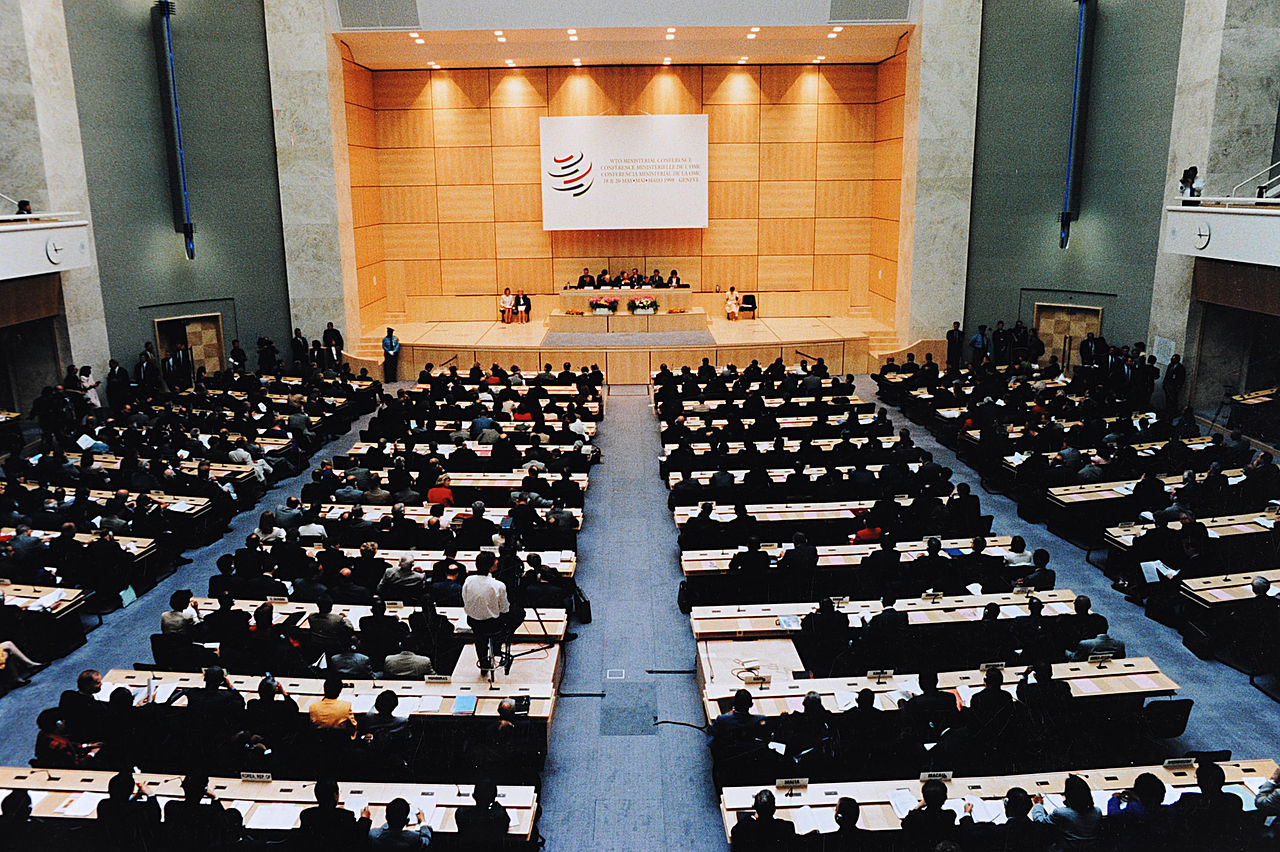The International Chamber of Commerce (ICC) has released recommendations for the reform of the World Trade Organization (WTO), which highlight the need to overhaul the WTO system, and provide practical suggestions for how governments can make trade work “for people and the planet”.
The document, announced by ICC secretary general John Denton last week at the WTO Public Forum in Geneva, calls for a shake-up of the entity across five areas: governance and accountability; updating the existing WTO rulebook; accelerating new rule-making; establishing a robust dispute settlement mechanism; and promoting coherence between trade policy and other international regimes.
“We recommend a reform process with an outcomes-focused approach,” says the ICC in the preamble to its recommendations. “A central aim must be to ensure that the WTO connects directly with the challenges people face through a comprehensive reform process that: opens goods and services trade to new players in developing and developed countries while offering adequate and enforceable disciplines against unfair trade; enables small and medium-sized companies to trade internationally – particularly by leveraging the power of new technologies; and enhances the contribution of commerce to social and environmental objectives.”
The WTO has become something of a whipping boy for the world’s trade woes of late. US President Donald Trump in July criticised the supranational body via a presidential memorandum, saying that it “continues to rest on an outdated dichotomy between developed and developing countries that has allowed some WTO members to gain unfair advantages in the international trade arena”.
His comments were followed by remarks from US trade representative Robert Lighthizer soon afterwards, who said: “For far too long, wealthy countries have abused the WTO by exempting themselves from its rules through the use of special and differential treatment. This unfairness disadvantages Americans who play by the rules, undermines negotiations at the WTO, and creates an unlevel playing field.”
Reforms have already been tabled: the G20 ministerial meeting on trade and digital economy, held in Japan in June, resulted in a commitment by ministers to “work constructively with other WTO members to undertake necessary WTO reform with a sense of urgency, including in the lead-up to the 12th WTO ministerial conference”. The ministerial statement released at the end of the meeting also highlighted the contribution that trade and the WTO make to “productivity, innovation, job creation and development” and underlined a number of areas where further action is needed, including “regarding the functioning of the dispute settlement system consistent with the rules as negotiated by the WTO members”.
This latest document from the ICC builds on this commitment and adds in a business-based focus, outlining concrete ways in which all participants in global trade can make the case to governments and stakeholders about the importance of trade reform and the critical priorities for business. “As WTO members ramp up negotiations ahead of the June 2020 ministerial conference in Kazakhstan, business is a key stakeholder whose needs and concerns should be taken into consideration. Between now and June, business has a unique window of opportunity to contribute to the shaping of the international trading system,” says the ICC.
The recommendations to the WTO include the establishment of a regular consultative mechanism with business in order to ensure that policymaking is fully connected to the real-world experience of trade. Another idea put forward by the ICC is the granting of “observer” rights to international business organisations in relevant working bodies of the WTO.
In addition, the ICC says it wants to see a thorough and comprehensive review of the existing WTO rulebook to directly address growing public discontent with the impacts, both real and perceived, of globalisation.
Clarification of the treatment of cross-border data flows, establishing evidence-based processes for the so-called special but differential treatment (SDT) – under which China is currently classified as a developing country, much to the ire of the US – and the safeguarding of a level playing field for international trade are also among the ICC’s proposals.
According to the ICC, WTO director general Roberto Azevêdo has “welcomed” the paper, calling it a “thoughtful and considered contribution that aligns with ongoing government-led processes”.
The ICC now urges its members to contribute to debates hosted by the Global Dialogue on Trade – which mobilises a range of multilateral organisations and agencies from around the world including the OECD, European Bank for Reconstruction and Development (EBRD), Asian Development Bank (ADB) and the Inter-American Development Bank (IADB) – and the Trade Dialogues platform, set up by the ICC in co-operation with the B20. In particular, the ICC hopes to collate views from business about structural reform, investment facilitation, sustainability, e-commerce and MSMEs which it will then transmit to policymakers in the months leading up to the 12th WTO ministerial conference next June, with the aim of keeping business needs front and centre during the WTO reform process.







